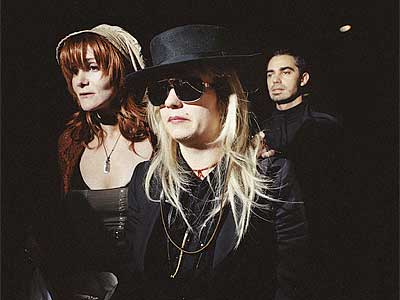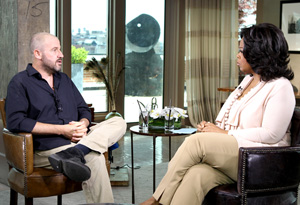***I wrote this a while ago and just re-discovered it. It brings up questions I'm always curious about, so I thought I'd share and hear what you think*** One of the first blog posts I ever wrote was around the time when there were all sorts of scandalous reports challenging the accuracy of James Frey’s memoirs, A Million Little Pieces and his follow up, My Friend Leonard. Jt Leroy, the troubled, young, writing wunderkind, had also just been outed as a creative scheme with a middle-aged San Francisco woman at the helm. In all honesty, despite my intellectual musings about how all our stories are ultimately fiction, I felt sad and disappointed, and a bit of a fool. I had devoured James Frey’s A Milion Little Pieces. I cried when his words sang into the hollows of my own despair; I sighed when his imagery echoed the experiences of my own father’s struggle with substance abuse; I laughed when his self-conscious inner monologues sounded all too familiar. Needless to say, I was moved. Just as I was moved reading JT Leroy’s far more raw and provocative works. Evidently, I’d read all his books before he became a counter-culture icon; Asia Argento directing and starring in the film version of one of his books. I was a fan. I had friends who were “friends” with him. I’d even met him at a film festival party in Toronto. I was too shy to introduce myself or share how much I’d enjoyed his work. As was typical, he was wearing massive sunglasses, a hat and I think even a wig. He had a whole persona. He was brilliant, shy, tortured and innocent all at once. That’s what made him so appealing.
So what does it mean when our illusions are shattered? When what we think is real—people, stories, events—turns out to be fiction? Does it matter? Yes, it matters. Of course it matters. If we don’t have truth, then what are we left with? Well, I think that’s the most important question of all, because in the end, there is no truth. The past doesn’t exist in the way we think it does, or want to believe it does. There’s no magical history book that documents life’s events, ensuring an accurate record we can reference at will. No, the past only exists in our experience, in the present. And since time is always moving forward (presumably), and the present is always changing, so are we—along with our thoughts and memories. So when I ask again, does it matter if our stories are fact or fiction? Does it make our tears any less real if we discover a tale to be tall? My answer is no. It shouldn’t. Or at least I don’t think it should, but that doesn’t mean I don’t feel compelled to protest against false advertising (which is really the underlying moral issue). No, I have those feelings because I’m a human being and I want to feel like I know what’s real and what’s not. It even makes me more survivable to know the difference between a real tiger and an Imax 3D one. The only real danger is when I’m so afraid of the feeling of unpredictability that I think the tiger isn’t real when it is.
I feel like I’m sort of shooting fish in a barrel here, since I was fortunate enough to play a character on tv who was faced with this exact struggle. Très apropos. Everything she knew to be true was dismantled right before her eyes. I mean, we’ve all had experiences when the truth stung, when the cold, dismal reality of someone not being who we thought left us shattered and untrusting, but you have to admit Cally met a particularly unfortunate fate. Not only was her husband not who he said *spoiler alert* (she was torn up at the idea of him having a measly affair), but he turned out to be the epitome of everything she feared and had fought against her entire life. He wasn’t just not human, he was the enemy. And he wasn’t just her husband, he was the father of her child and the only person she ever truly trusted. So yeah, pretty harsh. Needless to say, she didn’t handle it very well, and who can blame her? But it’s unsettling to recognize how much our identity is wrapped up in what we think we know. Not to get too spiritual or anything, but I have a hard time believing we’re solely made up of atoms and energy that ferments into some sort of “consciousness.” I believe we are more than just our bodies, more than our minds even. And if we knew this, maybe we wouldn’t disintegrate if we discovered something we thought was true to be false. We would simply be “ourselves” with a new perspective. Is that really so bad? It certainly feels like it at times, but perhaps that’s the beauty of being human—discovering the truth beyond “knowledge.”
So I just finished watching the movie Catfish. *spoiler alert - watch it!* Let me just start by saying I thought it was brilliant. Intentional or not, the fact it pissed people off and caused speculation as to its “authenticity” is win/win. I was so uncomfortable through the whole thing. I was uncomfortable with what was happening in the film, enthralled with its characters and their unlikely story, and I was uncomfortable with what was happening in my living room, frustrated with my own inability categorize what I was seeing and make sense of my own emotions. I fell into this recursive loop of existential uncertainty, only to be sucked in by scenes where I thought to myself, “You couldn’t make this shit up!” Only to be violently pulled in the other direction, thinking, "There's no way this is real!" I’m not going to give an opinion as to whether I think the film is real or fake because, quite honestly, I don’t care, and it doesn't matter. That’s the best part! It was so well done and the questions it raised are questions we should all be asking regardless; whether it’s by projecting on people having experiences in a documentary, or whether it’s through our own experience watching a “documentary” and speculating its legitimacy. Like a chinese finger trap, hating on it only distracts you from the truth, wrapping you tighter in your own limiting and warped delusions. And yet, I am only human after all, and I would just sleep a little sounder if I knew, like, was that shit for real or what?!?!
Further reading...
review of Catfish on The Documentary Blog




